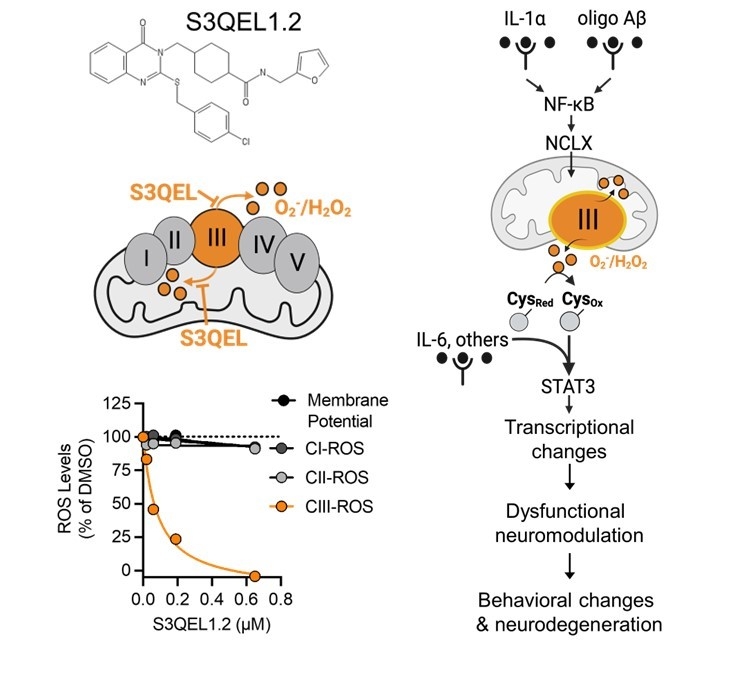You are here
Astrocytic Complex III ROS Amplifies Detrimental Neuroimmune Signaling and Dementia-related Pathogenesis
Speakers
Abstract
Alterations in mitochondria are implicated in aging and disease and involve increases in superoxide and other reactive oxygen species (ROS). Mitochondrial complex III (CIII-ROS) is a key driver of oxidative changes, but its exact triggers and downstream molecular, functional, and pathogenic contributions are not clear. In our latest work, we used S3QELs (“sequels”), site-selective suppressors of CIII-ROS, together with live-cell imaging of subcompartmental ROS, stoichiometric redox proteomics, transcriptomics, and complementary models of dementiaassociated tauopathy and amyloid pathology to investigate the involvement of CIIIROS in diseaserelated processes. Our findings suggest that CIIIROS are induced in astrocytes in a context-dependent manner by select stimuli that dysregulate mitochondrial ion exchange. Increases in astrocytic CIII-ROS cause targeted protein oxidation and altered transcription that exacerbated pathogenic proceses. Therapeutic suppression of CIII-ROS reduced neuropathology in mouse models of dementia and extended lifespan. Therefore, CIII-ROS amplifies pathogenic processes in the brain and represents a new target for neurological disorders.


